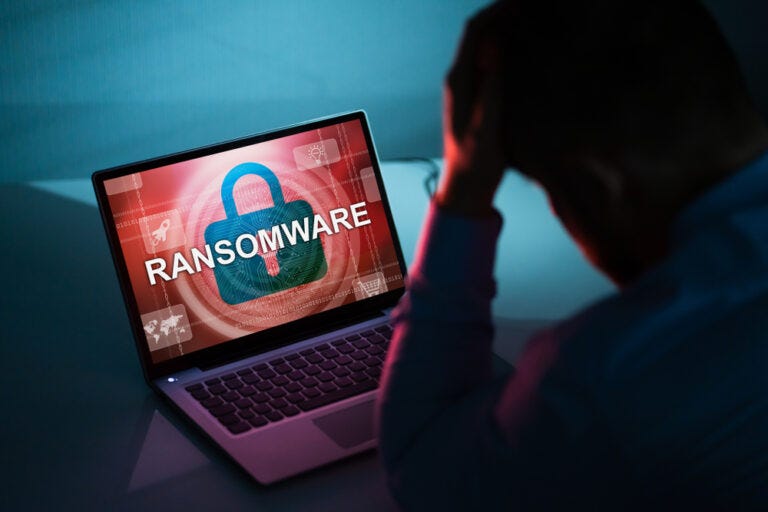Cybercrime is a growing threat that affects organizations of all sizes and industries. While large corporations often grab the headlines, small businesses are actually the most common organizations that are vulnerable to cyberattacks. Here, we’ll discuss why small businesses are such a prime target, the most severe attacks they face, and what they need to do to protect themselves.
Why Small Businesses are a Prime Target
Small businesses are attractive to cybercriminals because they often have limited resources and budgets to invest in cybersecurity measures. Attackers will find it simpler to exploit weaknesses and access private data as a result. Additionally, small businesses might lack dedicated IT departments to track threats and take action, making them susceptible to long-lasting attacks.
The Most Severe Attacks

Cybercrime comes in many forms, from phishing scams to malware attacks, but some of the most severe attacks that small businesses face include:
- Ransomware: It is a type of malicious software that targets computer systems and encrypts the victim’s important files and data. This means that the victim is no longer able to access or use their own files. The attackers then demand a ransom payment, usually in the form of cryptocurrency, in exchange for a decryption key that will unlock the encrypted files.
- Data Breach: A data breach is when someone who shouldn’t have access, gets their hands on sensitive information belonging to a company. This can include things like customers’ personal information, financial details, and even trade secrets. It’s like a thief breaking into a safe and stealing important papers. The goal of a data breach is often to steal this information and use it for illegal purposes.
- Business email compromise: It’s a sneaky scam where someone pretending to be a boss or high-ranking executive sends an email asking for sensitive information or for money to be transferred. The goal is to trick employees into giving up important information or sending money without realizing it. It’s important for companies to educate their employees on how to recognize and avoid BEC scams.
- POS Malware attack: A Point-of-Sale (POS) malware attack is a type of cyber attack that targets the payment systems used by businesses, such as cash registers and credit card readers. The attackers install malware on these systems to steal credit card information from customers as they make purchases. The stolen information is then used for fraudulent activities such as identity theft and credit card fraud.
Real-Life Examples of Vulnerabilities and Consequences of Small Businesses
- Atlanta-based web design firm, MochaHost, was the target of a ransomware attack in 2019 that resulted in the theft of sensitive customer information.
- In 2020, a small accounting firm in Texas was the victim of a phishing attack that resulted in the theft of over $1 million from the company’s bank accounts.
- A small e-commerce business in California experienced a data breach in 2019 when an attacker gained unauthorized access to the company’s payment system and stole customer payment information.
- A small hotel in Florida was hit by a point-of-sale malware attack in 2018 that resulted in the theft of credit card information from thousands of guests.
- A small law firm in New York was targeted by a cyber attack in 2020 that resulted in the theft of confidential client information and the disruption of the company’s operations.
What You Can Do to Protect Yourself

While the threat of cybercrime may seem daunting, there are steps you can take to protect your business. Here are a few tips:
- Invest in cybersecurity software: This includes anti-virus, anti-malware, and firewall protection.
- Train employees: Educate your employees on the dangers of phishing scams, social engineering, and other types of cybercrime.
- Regularly back up data: Make sure to regularly back up important data so that you can restore it if it’s lost in a cyber attack.
- Implement strong passwords: Encourage employees to use strong, unique passwords and regularly change them.
Cybercrime is a growing threat that affects organizations of all sizes. Because of their limited resources and budgets, small businesses are particularly vulnerable. It’s crucial to invest in cybersecurity software, train staff, back up data, and use strong passwords to protect yourself. Don’t wait until it’s too late — take action now to protect your business from cybercrime.
Utilize CyberArk and Credenti™ to Protect Your Business from Cyber Threats
CyberArk, a leading provider of privileged access management (PAM) solutions, assists businesses in securing and controlling access to sensitive data and critical systems. Controlling, monitoring, and auditing access to privileged accounts is one way that CyberArk assists organizations in reducing their vulnerability to cyberattacks, data breaches, and other security incidents.
Credenti™ can assist businesses with implementing CyberArk and making sure it is completely incorporated into their security infrastructure. Our team of experts can perform a comprehensive analysis of your CyberArk implementation, identifying any potential flaws and making suggestions for modifications to improve security. In order to help you stay on top of the most recent threats and keep your systems secure, we can also offer ongoing support and maintenance.
By partnering with Credenti™, you can be sure that your business is safeguarded against cyberattacks and that you have a dependable partner to guide you through the constantly changing threat landscape.
Reach out to us: marketing@tecnics.com

